BUTALBITAL/ACETAMINOPHEN/CAFFEINE - ORAL
PHONETIC PRONUNCIATION: (bue-TAL-bi-tal/a-SEET-a-MIN-oh-fen/KAF-een)
COMMON BRAND NAME(S): Esgic, Fioricet
GENERIC NAME(S): butalbital/acetaminophen/caffeine
Uses
USES: This combination medication is used to treat tension headaches. Acetaminophen helps to decrease the pain from the headache. Caffeine helps increase the effects of acetaminophen. Butalbital is a sedative that helps to decrease anxiety and cause sleepiness and relaxation.
How to use BUTALBITAL/ACETAMINOPHEN/CAFFEINE - ORAL
HOW TO USE: See also Warning section. Take this medication by mouth with or without food as directed by your doctor, usually every 4 hours as needed. If you are using the liquid form of this medication, carefully measure the dose using a special measuring device/spoon. Do not use a household spoon because you may not get the correct dose. The dosage is based on your medical condition, age, and response to treatment. This medication works best if it is used as the first signs of a headache occur. If you wait until the headache has worsened, the medication may not work as well. This medication may cause withdrawal reactions, especially if it has been used regularly for a long time or in high doses. In such cases, withdrawal symptoms (such as nausea/vomiting, mental/mood changes, seizures) may occur if you suddenly stop using this medication. To prevent withdrawal reactions, your doctor may reduce your dose gradually. Report any withdrawal reactions right away. Though it helps many people, this medication may sometimes cause addiction. This risk may be higher if you have a substance use disorder (such as overuse of or addiction to drugs/alcohol). Take this medication exactly as prescribed to lower the risk of addiction. Ask your doctor or pharmacist for more details. Tell your doctor if you notice increased use of this medication, a worsening of headaches, an increase in the number of headaches, the medication not working as well, or use of this medication for more than 2 headache episodes a week. Do not take more than recommended. Your doctor may need to change your medication and/or add a separate medication to prevent the headaches.
Side Effects
Precautions
Interactions
Overdose
Images
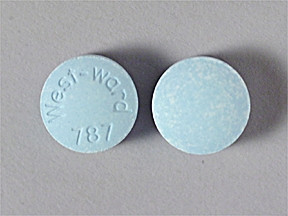
- color
- blue
- shape
- round
- imprint
- West-ward 787

- color
- blue
- shape
- round
- imprint
- West-ward 787
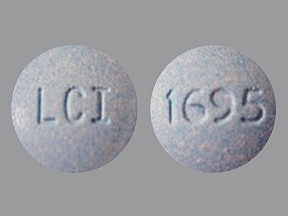
- color
- light blue
- shape
- round
- imprint
- LCI, 1695

- color
- light blue
- shape
- round
- imprint
- LCI, 1695
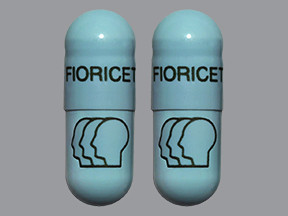
- color
- light blue
- shape
- oblong
- imprint
- FIORICET FIORICET, logo and logo

- color
- light blue
- shape
- oblong
- imprint
- FIORICET FIORICET, logo and logo
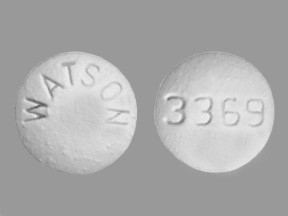
- color
- white
- shape
- round
- imprint
- WATSON, 3369

- color
- white
- shape
- round
- imprint
- WATSON, 3369
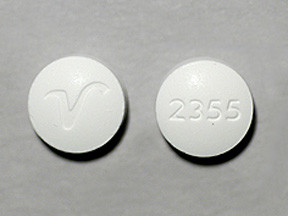
- color
- white
- shape
- round
- imprint
- 2355, V
Reviews
Faq for BUTALBITAL/ACETAMINOPHEN/CAFFEINE - ORAL
Butalbital/Acetaminophen/Caffeine is a combination medication that is used to treat tension headaches. It contains butalbital (a barbiturate), acetaminophen (a pain reliever), and caffeine (a stimulant).
Butalbital/Acetaminophen/Caffeine works by relaxing muscle contractions and reducing tension, which helps to relieve headache pain. Acetaminophen helps to reduce fever and relieve pain, while caffeine helps to enhance the effects of acetaminophen.
The recommended dosage of Butalbital/Acetaminophen/Caffeine varies depending on the individual and the severity of the headache. It is important to follow the instructions provided by your doctor or pharmacist.
Yes, common side effects may include drowsiness, dizziness, lightheadedness, nausea, vomiting, and upset stomach. It is important to talk to your doctor if these side effects persist or worsen.
Yes, Butalbital, one of the ingredients in this medication, is classified as a barbiturate and can be habit-forming if used excessively or for prolonged periods. It is important to take this medication exactly as prescribed by your doctor.
It is important to discuss the risks and benefits with your doctor if you are pregnant or breastfeeding before taking Butalbital/Acetaminophen/Caffeine. The medication may have potential risks to the fetus or may be excreted in breast milk.
Drinking alcohol while taking Butalbital/Acetaminophen/Caffeine may increase the risk of liver damage or other side effects. It is generally recommended to avoid alcohol while on this medication.
Butalbital/Acetaminophen/Caffeine typically starts working within 30 to 60 minutes after ingestion. However, individual response may vary.
It is important to inform your doctor about all medications, including over-the-counter drugs and herbal supplements, that you are taking. Certain medications may interact with Butalbital/Acetaminophen/Caffeine and lead to potentially harmful effects.
Warning
WARNING: One ingredient in this product is acetaminophen. Taking too much acetaminophen may cause serious (possibly fatal) liver disease. Adults should not take more than 4000 milligrams (4 grams) of acetaminophen a day. People with liver problems and children should take less acetaminophen. Ask your doctor or pharmacist how much acetaminophen is safe to take. Do not use with any other drug containing acetaminophen without asking your doctor or pharmacist first. Acetaminophen is in many nonprescription and prescription medications (such as pain/fever drugs or cough-and-cold products). Check the labels on all your medicines to see if they contain acetaminophen, and ask your pharmacist if you are unsure. Get medical help right away if you take too much acetaminophen (overdose), even if you feel well. Overdose symptoms may include nausea, vomiting, loss of appetite, sweating, stomach/abdominal pain, extreme tiredness, yellowing eyes/skin, and dark urine. Daily alcohol use, especially when combined with acetaminophen, may damage your liver. Avoid alcohol.
Disclaimer
IMPORTANT: HOW TO USE THIS INFORMATION: This is a summary and does NOT have all possible information about this product. This information does not assure that this product is safe, effective, or appropriate for you. This information is not individual medical advice and does not substitute for the advice of your health care professional. Always ask your health care professional for complete information about this product and your specific health needs.
No Reviews Yet